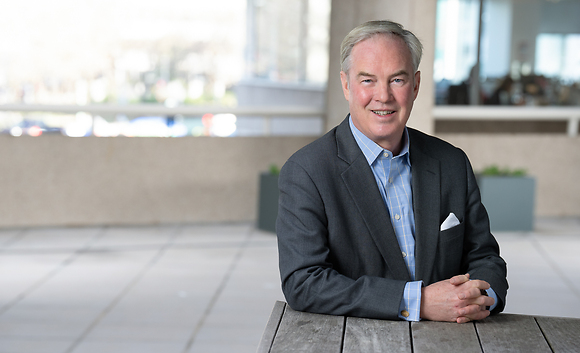Trevor Potter Quoted in The Boston Globe, Super PACs' Impact Growing
12.20.2011
The Boston Globe
Excerpt taken from article.
Super PACs, the new campaign weapon of choice since last year's Supreme Court ruling that struck down contribution limits on corporations, labor unions, and wealthy individuals, are playing an increasingly muscular role in the days before the first contests in the Republican presidential nominating contest.
The proliferation of these committees - which can solicit large contributions but cannot work directly with candidates - has allowed campaigns to conserve their resources as their proxies hit the airwaves in Iowa, New Hampshire, South Carolina, and, in the latest development, Florida.
The identities of many of the donors to these super PACs may not be disclosed to the election commission until Jan. 31, the date of the Florida primary, when year-end reports are due. In theory, at least, if one candidate gets hot through the early contests, the nomination could be wrapped up before the public knows who paid for the advertisements that will fill the airwaves with increasing frequency.
Under Federal Election Commission rules, committees must file reports 12 days before a primary in which they have expended funds. That means that Our Destiny PAC, which has aired ads in New Hampshire supporting Huntsman, must disclose its receipts and expenditures by Dec. 29. However, the election commission has not required such reports before caucuses like Iowa's, a recent memo directed to committee treasurers states.
"It's the worst of all possible worlds,'' said Trevor Potter, a former commission chairman appointed by President George H.W. Bush. "You have no contribution limits [like those on contributions to the candidates' campaigns] and hit-or-miss disclosure.'' Potter is also president of the Campaign Legal Center, a nonpartisan campaign finance watchdog group.
"The difference in this cycle is that candidates are raising much less money than they did before for their own campaigns, and their big donors are giving to super PACs and the amount spent is much more,'' said Potter, who was campaign counsel to Republican John McCain's presidential campaigns in 2000 and 2008. "The fund-raisers are leaving the campaigns and going to the super PACs because the people they know are writing the big checks.''
Click here to read the article on the role of super PACs in the Republican presidential nomination contest.
Super PACs, the new campaign weapon of choice since last year's Supreme Court ruling that struck down contribution limits on corporations, labor unions, and wealthy individuals, are playing an increasingly muscular role in the days before the first contests in the Republican presidential nominating contest.
The proliferation of these committees - which can solicit large contributions but cannot work directly with candidates - has allowed campaigns to conserve their resources as their proxies hit the airwaves in Iowa, New Hampshire, South Carolina, and, in the latest development, Florida.
The identities of many of the donors to these super PACs may not be disclosed to the election commission until Jan. 31, the date of the Florida primary, when year-end reports are due. In theory, at least, if one candidate gets hot through the early contests, the nomination could be wrapped up before the public knows who paid for the advertisements that will fill the airwaves with increasing frequency.
Under Federal Election Commission rules, committees must file reports 12 days before a primary in which they have expended funds. That means that Our Destiny PAC, which has aired ads in New Hampshire supporting Huntsman, must disclose its receipts and expenditures by Dec. 29. However, the election commission has not required such reports before caucuses like Iowa's, a recent memo directed to committee treasurers states.
"It's the worst of all possible worlds,'' said Trevor Potter, a former commission chairman appointed by President George H.W. Bush. "You have no contribution limits [like those on contributions to the candidates' campaigns] and hit-or-miss disclosure.'' Potter is also president of the Campaign Legal Center, a nonpartisan campaign finance watchdog group.
"The difference in this cycle is that candidates are raising much less money than they did before for their own campaigns, and their big donors are giving to super PACs and the amount spent is much more,'' said Potter, who was campaign counsel to Republican John McCain's presidential campaigns in 2000 and 2008. "The fund-raisers are leaving the campaigns and going to the super PACs because the people they know are writing the big checks.''
Click here to read the article on the role of super PACs in the Republican presidential nomination contest.
Attorneys
- Senior Counsel
